Browse the Collection
Browsing 21 items in our archive
-
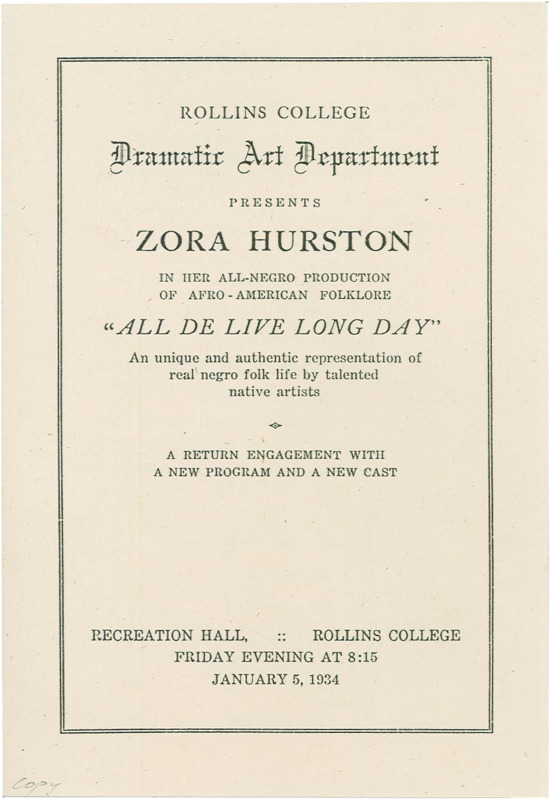 Rollins College | Text
Rollins College | TextAll De Live Long Day Program, 1934
All De Live Long Day, a program of African American folklore, music, and dance, was the second of two productions by Zora Neale Hurston to be performed on the Rollins campus during the 1930s.Learn more -
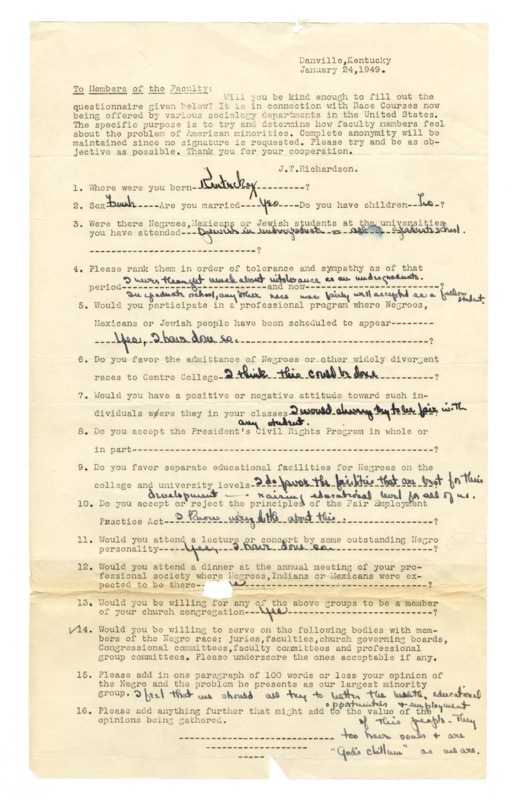 Centre College | Text
Centre College | TextAmerican minorities faculty questionnaire (1)
Anonymous responses to a questionnaire distributed to Centre College faculty January 24, 1949, the stated purpose of which was "to try an determine how faculty members feel about the problem of American minorities."Learn more -
 Centre College | Text
Centre College | TextAmerican minorities faculty questionnaire (10)
Anonymous responses to a questionnaire distributed to Centre College faculty January 24, 1949, the stated purpose of which was "to try an determine how faculty members feel about the problem of American minorities."Learn more -
 Centre College | Text
Centre College | TextAmerican minorities faculty questionnaire (11)
Anonymous responses to a questionnaire distributed to Centre College faculty January 24, 1949, the stated purpose of which was "to try an determine how faculty members feel about the problem of American minorities."Learn more -
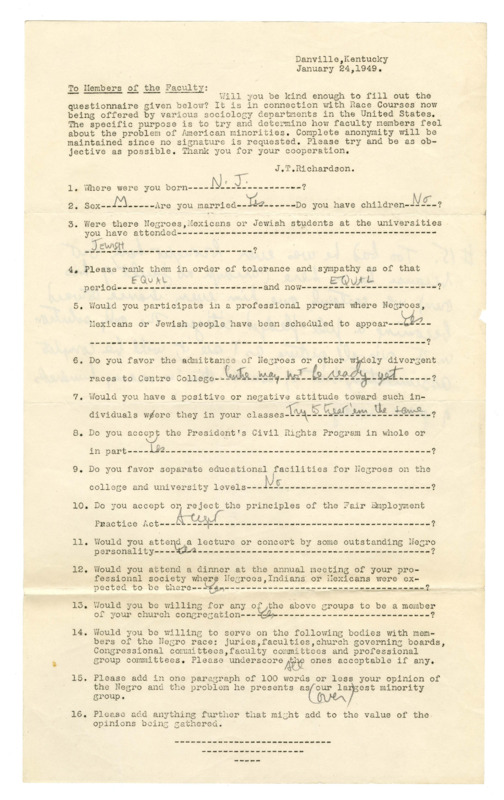 Centre College | Text
Centre College | TextAmerican minorities faculty questionnaire (12)
Anonymous responses to a questionnaire distributed to Centre College faculty January 24, 1949, the stated purpose of which was "to try an determine how faculty members feel about the problem of American minorities."Learn more -
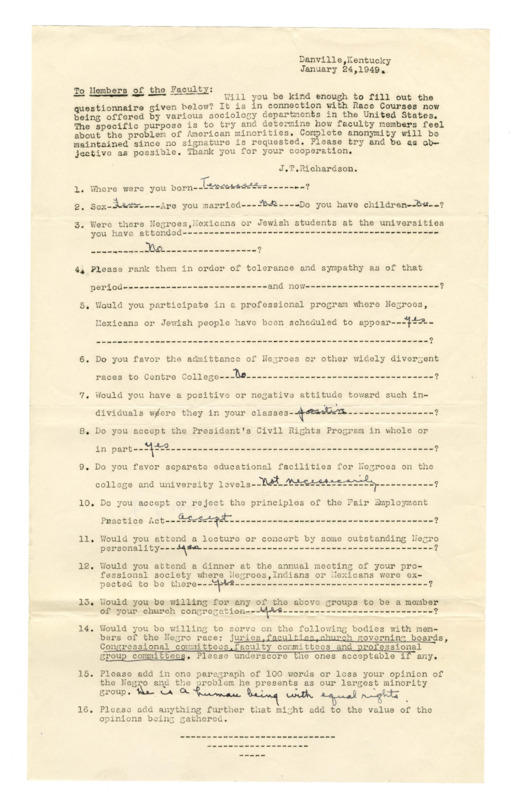 Centre College | Text
Centre College | TextAmerican minorities faculty questionnaire (2)
Anonymous responses to a questionnaire distributed to Centre College faculty January 24, 1949, the stated purpose of which was "to try an determine how faculty members feel about the problem of American minorities."Learn more -
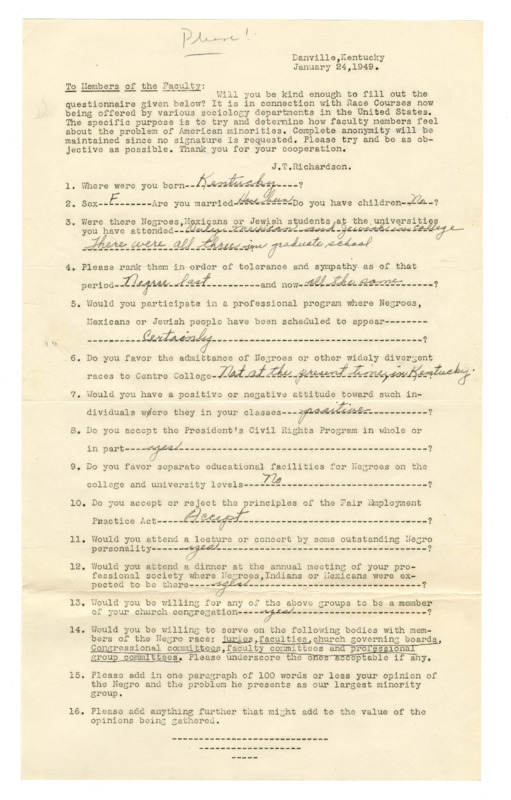 Centre College | Text
Centre College | TextAmerican minorities faculty questionnaire (3)
Anonymous responses to a questionnaire distributed to Centre College faculty January 24, 1949, the stated purpose of which was "to try an determine how faculty members feel about the problem of American minorities."Learn more -
 Centre College | Text
Centre College | TextAmerican minorities faculty questionnaire (4)
Anonymous responses to a questionnaire distributed to Centre College faculty January 24, 1949, the stated purpose of which was "to try an determine how faculty members feel about the problem of American minorities."Learn more -
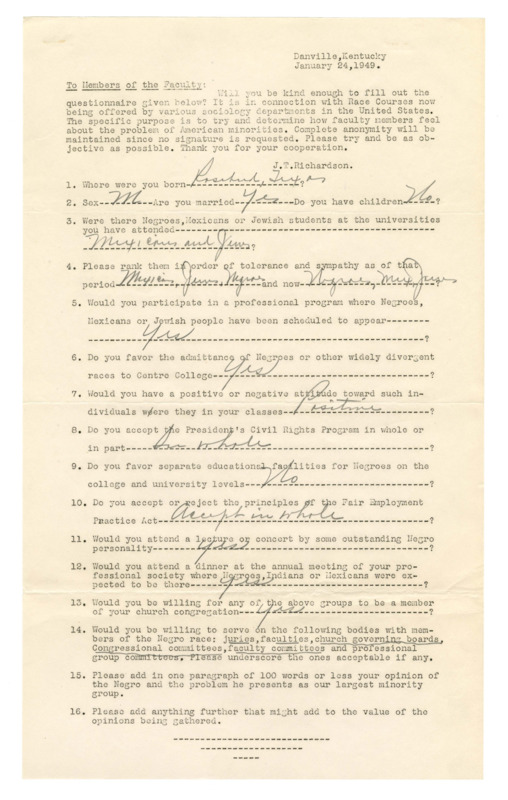 Centre College | Text
Centre College | TextAmerican minorities faculty questionnaire (5)
Anonymous responses to a questionnaire distributed to Centre College faculty January 24, 1949, the stated purpose of which was "to try an determine how faculty members feel about the problem of American minorities."Learn more -
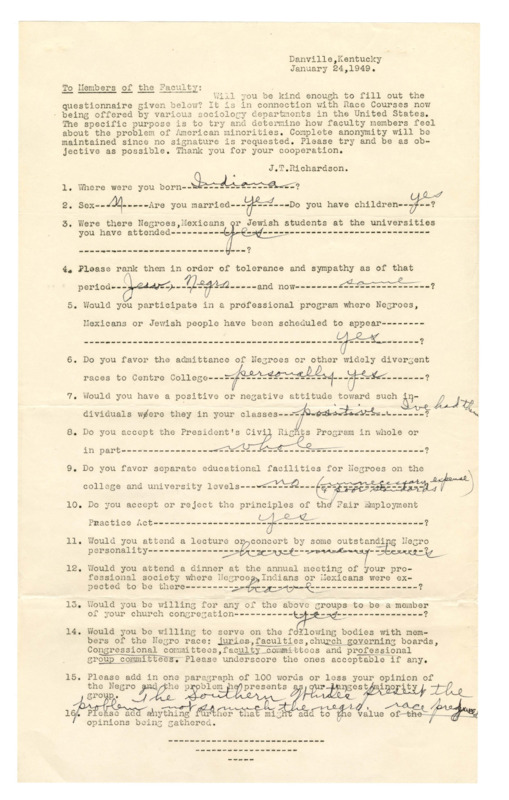 Centre College | Text
Centre College | TextAmerican minorities faculty questionnaire (6)
Anonymous responses to a questionnaire distributed to Centre College faculty January 24, 1949, the stated purpose of which was "to try an determine how faculty members feel about the problem of American minorities."Learn more -
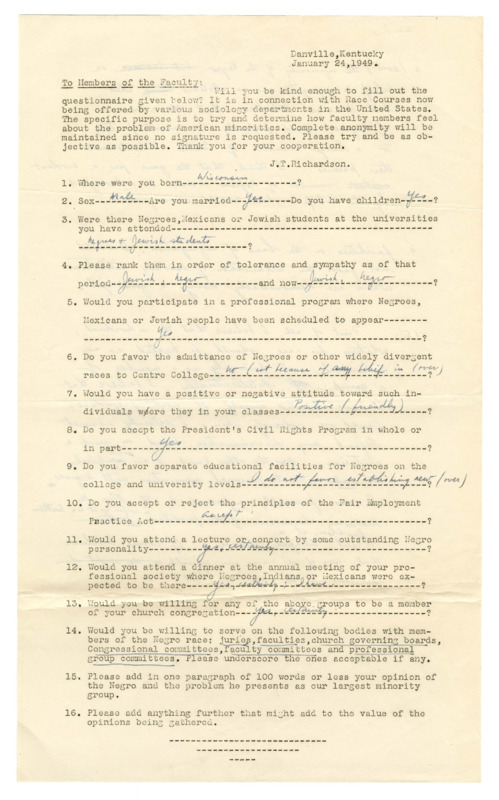 Centre College | Text
Centre College | TextAmerican minorities faculty questionnaire (7)
Anonymous responses to a questionnaire distributed to Centre College faculty January 24, 1949, the stated purpose of which was "to try an determine how faculty members feel about the problem of American minorities."Learn more -
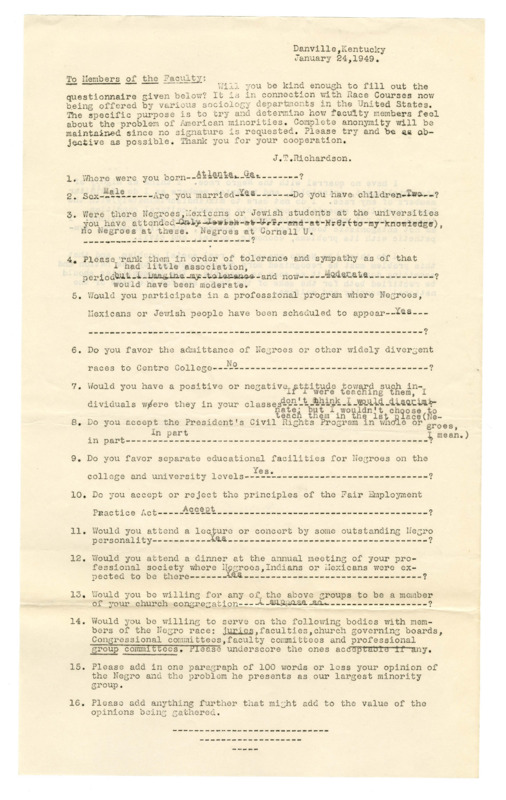 Centre College | Text
Centre College | TextAmerican minorities faculty questionnaire (8)
Anonymous responses to a questionnaire distributed to Centre College faculty January 24, 1949, the stated purpose of which was "to try an determine how faculty members feel about the problem of American minorities."Learn more -
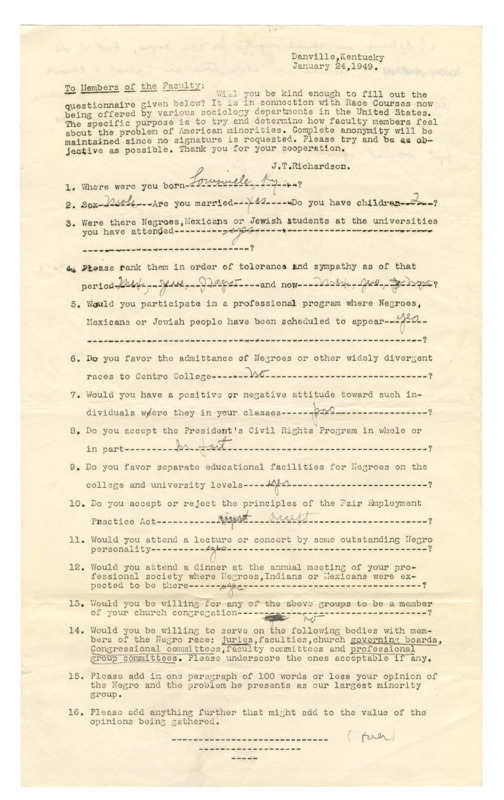 Centre College | Text
Centre College | TextAmerican minorities faculty questionnaire (9)
Anonymous responses to a questionnaire distributed to Centre College faculty January 24, 1949, the stated purpose of which was "to try an determine how faculty members feel about the problem of American minorities."Learn more -
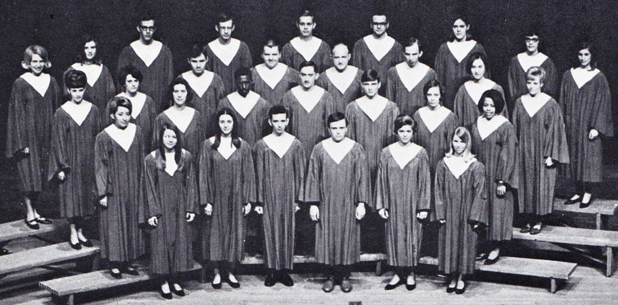 Furman University | Image
Furman University | ImageFurman Concert Choir
Joseph Vaughn '68 performing in the Furman Concert Choir. Vaughn became the university's first African American student on Jan. 29, 1965.Learn more -
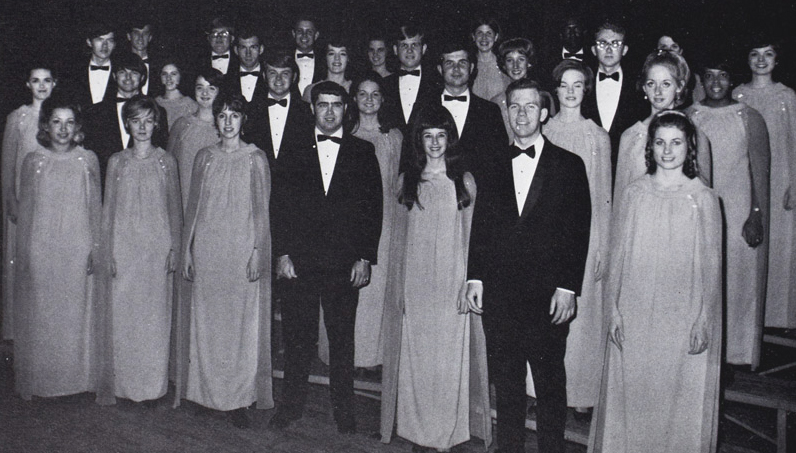 Furman University | Image
Furman University | ImageFurman Concert Choir
The 1969-1970 Furman University Concert Choir. A member of the choir, Sarah Reese '71, can be seen at the far right in photo, third row. Reese enrolled at Furman in 1967 as one of the university's first African American women. Sarah Reese would later become a world-famous opera singer.Learn more -
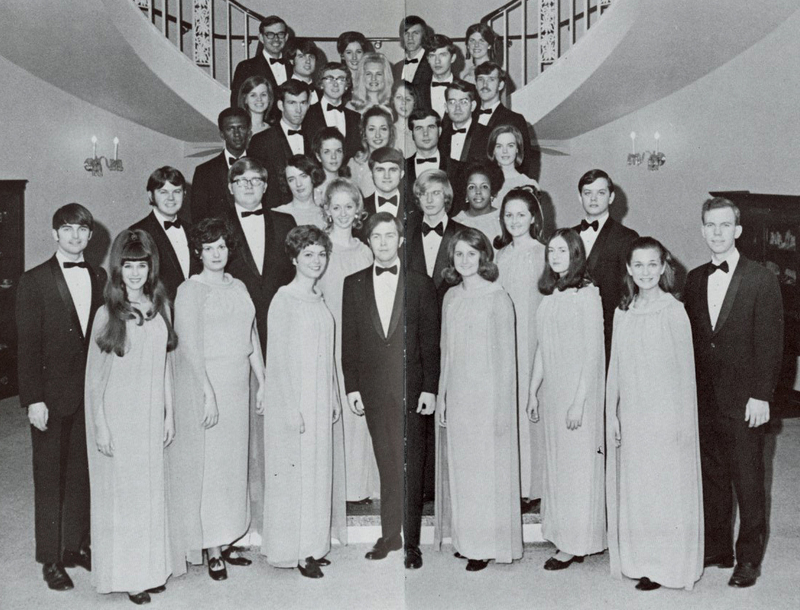 Furman University | Image
Furman University | ImageFurman Concert Choir
The 1970-1971 Furman University Concert Choir. Members of the choir include: Sarah Reese '71, in the third row, far right, and Ronald (Rawn) Harbor '71, in the fourth row, far left. Reese and Harbor were some of Furman's first African American students.Learn more -
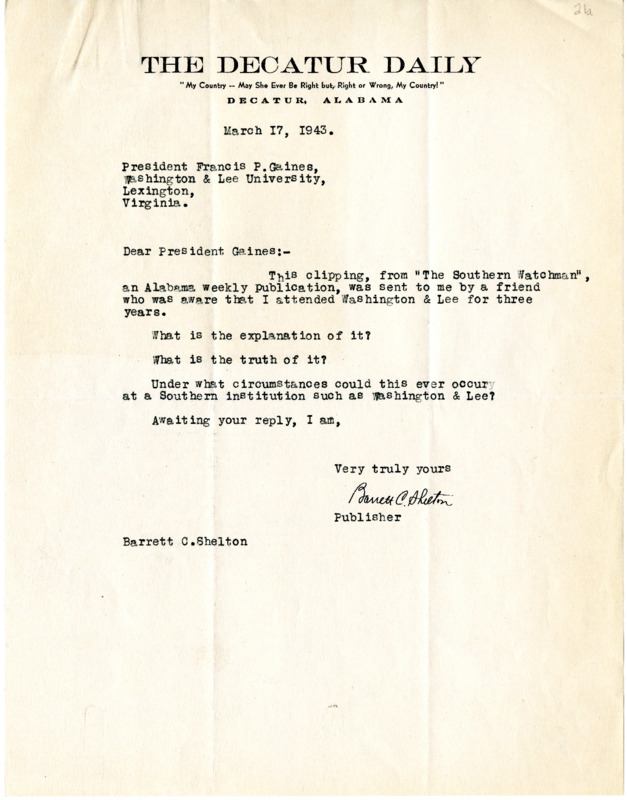 W & L University | Text
W & L University | TextLetter from Barrett C. Shelton to Francis P. Gaines (March 17, 1943)
In this letter with enclosed clipping from the Southern Watchman, Publisher Barrett C. Shelton asks President Francis P. Gaines about Black W&L graduates. Gaines responds.Learn more -
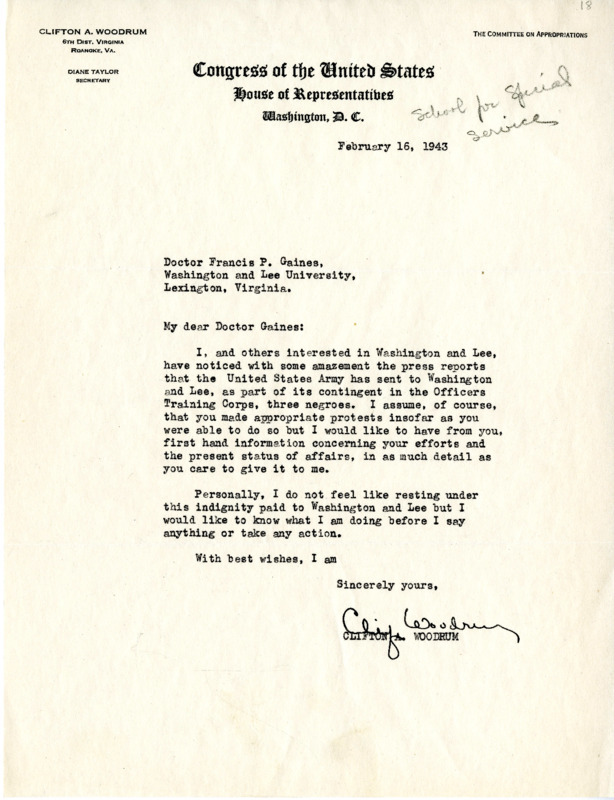 W & L University | Text
W & L University | TextLetter from Clifton A. Woodrum to Francis P. Gaines (February 16, 1943)
In this letter from U.S. Congressman and W&L Law Alumnus Clifton A. Woodrum to President Francis P. Gaines, Woodrum asks Gaines about three Black students sent to the Officers Training Corp at Washington and Lee.Learn more -
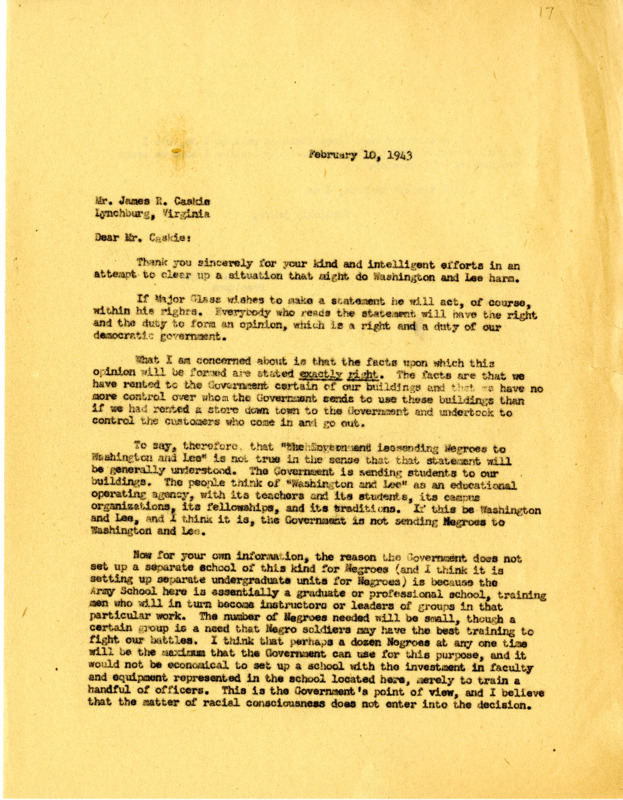 W & L University | Text
W & L University | TextLetter from Francis P. Gaines to James R. Caskie (February 10, 1943)
In this letter from President Francis P. Gaines to Trustee James R. Caskie, Gaines and Caskie discuss the public's perception of the possibility of Black students being present on Washington and Lee's campus through the U.S. Army School.Learn more -
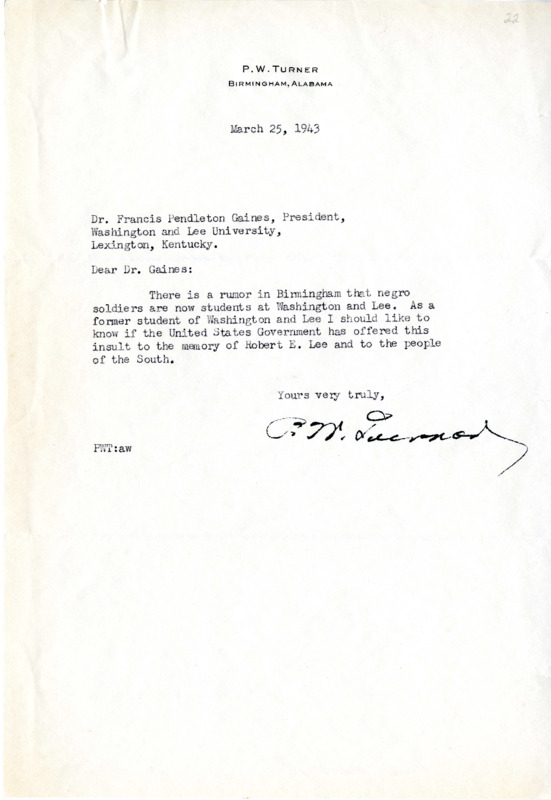 W & L University | Text
W & L University | TextLetter from P. W. Turner to Francis P. Gaines (March 25, 1943)
In this letter from P. W. Turner to President Francis P. Gaines, Turner asks about the presence of Black students at Washington and Lee.Learn more -
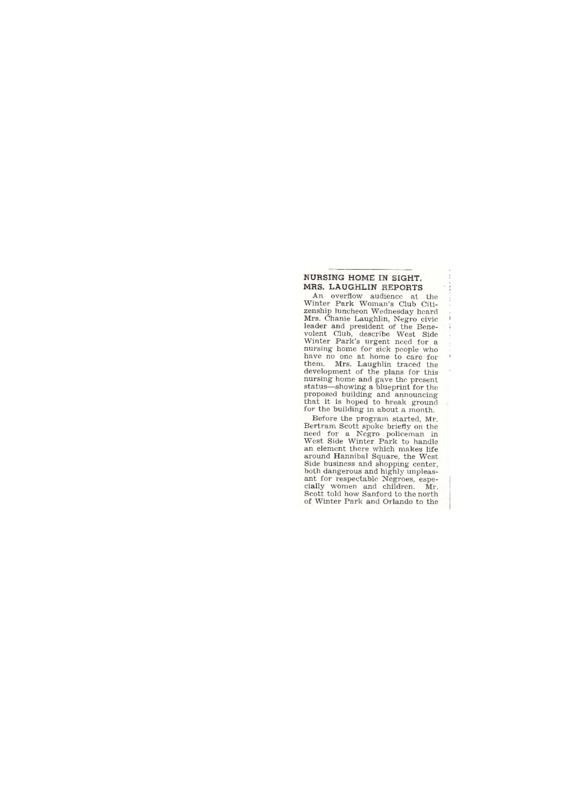 Rollins College | Text
Rollins College | TextNursing Home in Sight, Mrs. Laughlin Reports, 1952
Winter Park Topics reports that the need for an African American policeman in West Winter Park was brought up at a meeting of the Woman's Club. Before the presentation about a new nursing home in west Winter Park, Bertram Scott tells the audience that the policeman would improve the safety of west Winter Park and notes that both Sanford and Orlando are ahead of Winter Park in introducing African American police officers.Learn more
